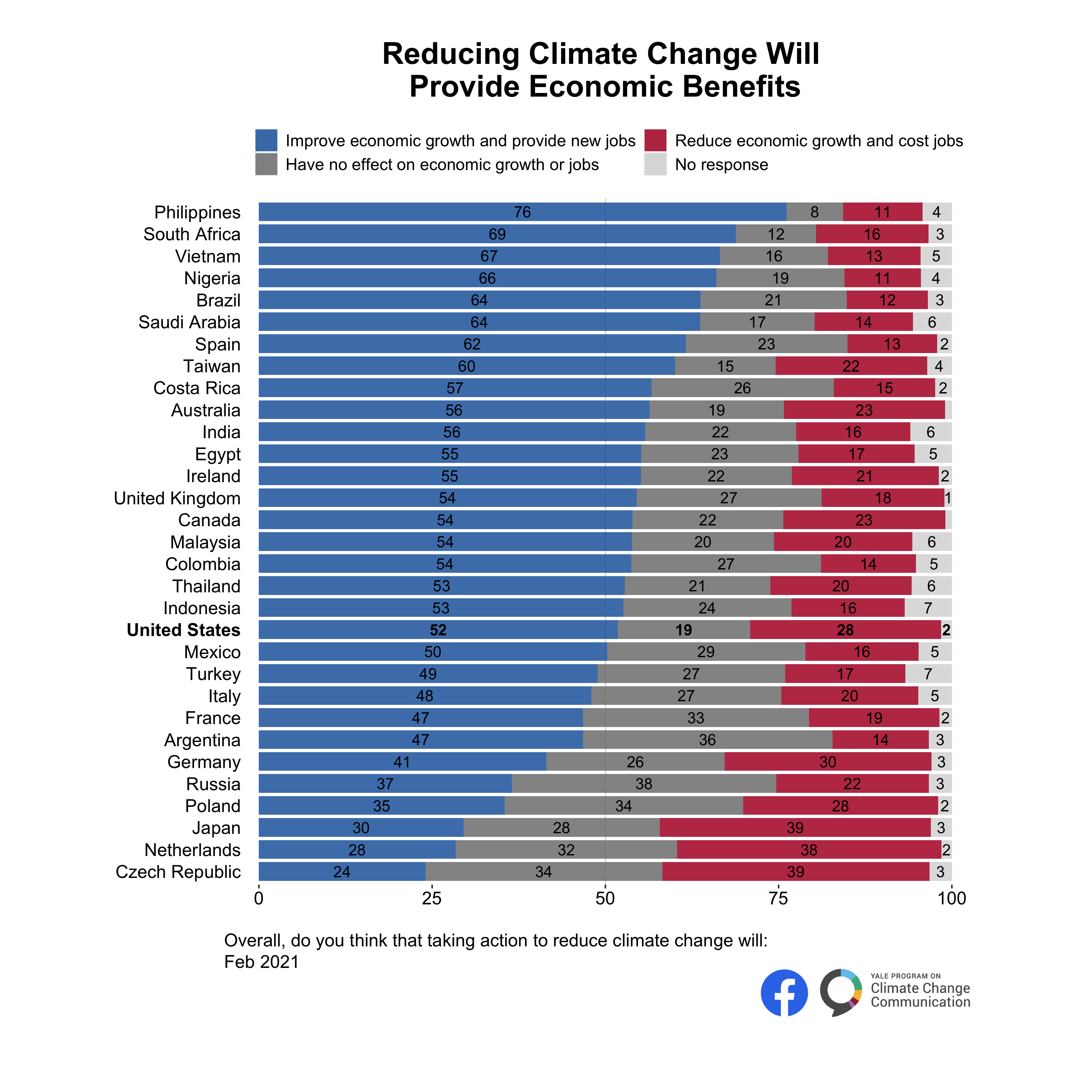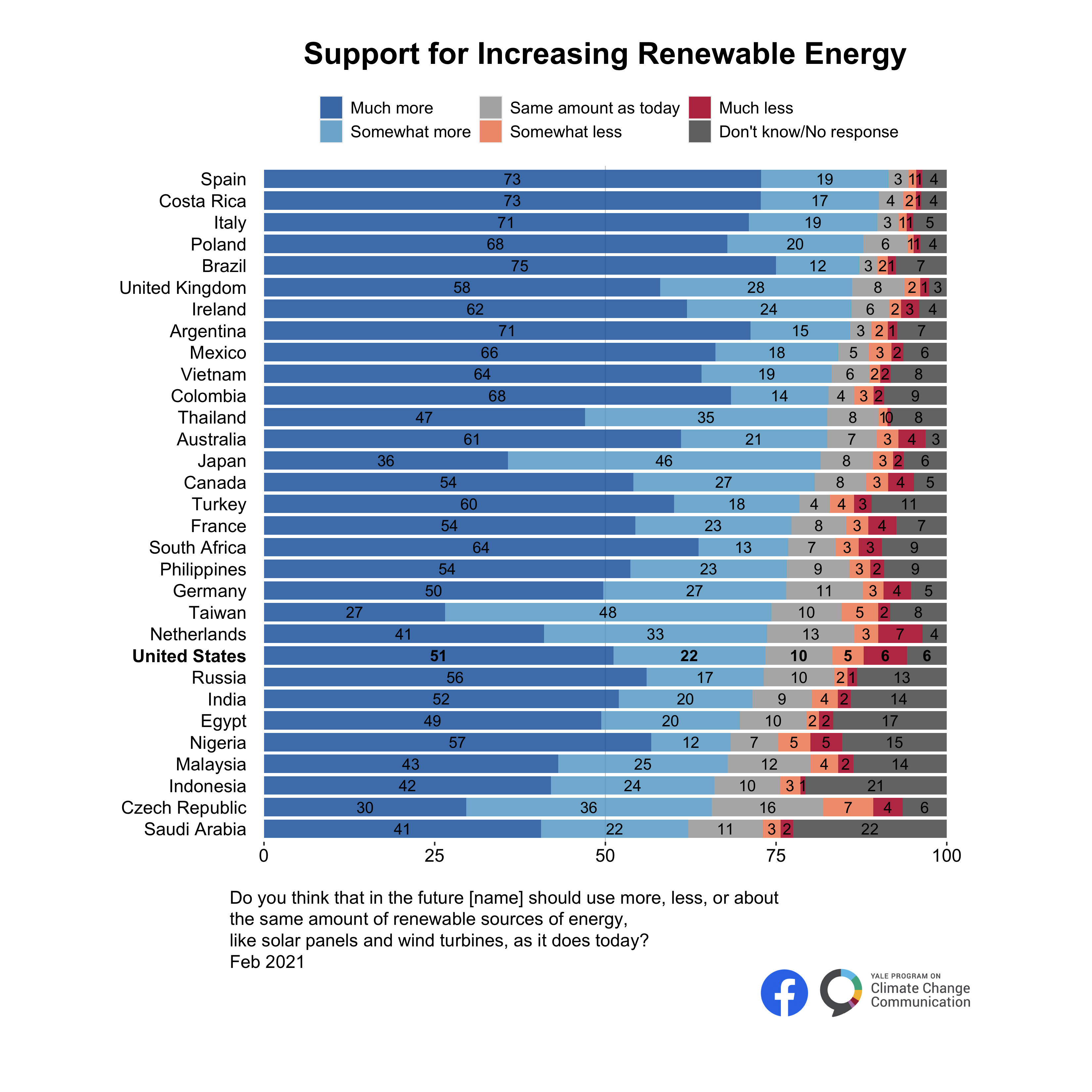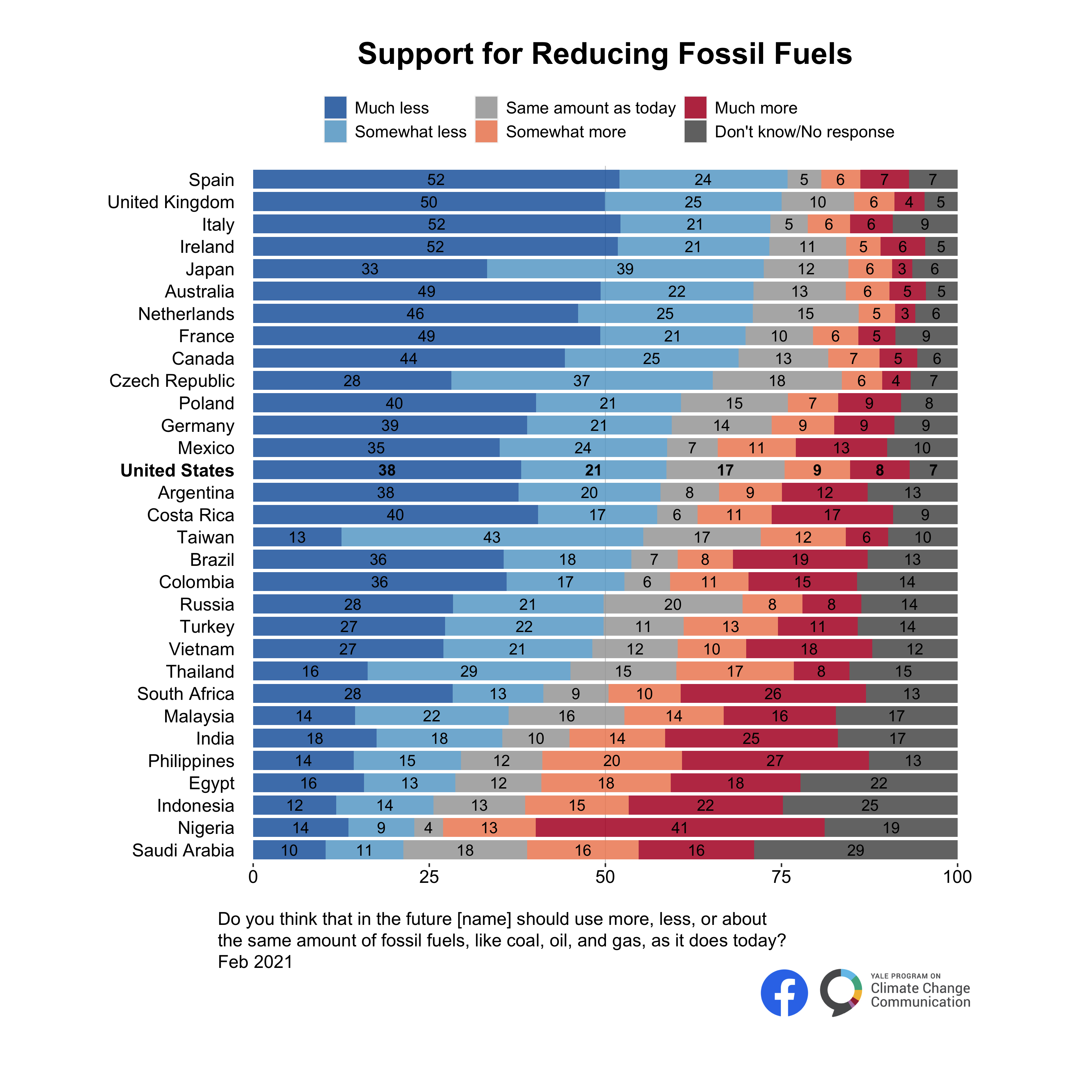Report · Jun 28, 2021
International Public Opinion on Climate Change
By Anthony Leiserowitz, Jennifer Carman, Nicole Buttermore, Xinran Wang, Seth Rosenthal, Jennifer Marlon and Kelsey Mulcahy
Filed under: Audiences, Beliefs & Attitudes, Behaviors & Actions, Policy & Politics and Climate Impacts
4. Energy and the Economy
4.1. Majorities in most countries and territories think that action to reduce climate change will improve economic growth.
Majorities of respondents in about two-thirds of the countries and territories surveyed (21 out of 31) think that action to reduce climate change will improve economic growth and provide new jobs. Respondents in the Philippines (76%) are the most likely to think so, while respondents in the Czech Republic (24%) are the least likely. In contrast, respondents in the Czech Republic (39%) and Japan (39%) are the most likely to think that action to reduce climate change will reduce economic growth and cost jobs, while respondents in the Philippines (11%), Nigeria (11%), and Brazil (12%) are the least likely to think so. In the United States, most respondents (52%) think that action to reduce climate change will improve economic growth and provide new jobs, while fewer than three in ten (28%) think it will reduce economic growth and cost jobs.
4.2. Majorities in every country or territory support increased use of renewable energy.
Large majorities in every surveyed country or territory say that it should use “somewhat more” or “much more” renewable sources of energy than it does currently. Respondents in Spain (91%), Costa Rica (90%), and Italy (90%) are the most likely to think that their country should use “somewhat more” or “much more” renewable energy, while respondents in Saudi Arabia (62%) are the least likely. Relatively few respondents say that their country or territory should use less renewable energy. In the United States, nearly three in four respondents (73%) say that the country should use “somewhat more” or “much more” renewable energy, including about half (51%) who say the U.S. should use “much more.”
4.3. Majorities in most countries and territories support decreased use of fossil fuels.
Majorities in nearly two-thirds (20 out of 31) of the countries and territories surveyed say their country or territory should use “somewhat less” or “much less” fossil fuels than it does currently. Respondents in Spain (76%) are the most likely to say that their country should reduce their use of fossil fuels, while respondents in Saudi Arabia (21%) are the least likely. In a few countries, many respondents say that their country should increase their use of fossil fuels, including a majority of respondents in Nigeria (54%). In the United States, most respondents (59%) say that the country should use “somewhat less” or “much less” fossil fuels, while about one in five (18%) say the country should use “somewhat more” or “much more.”


